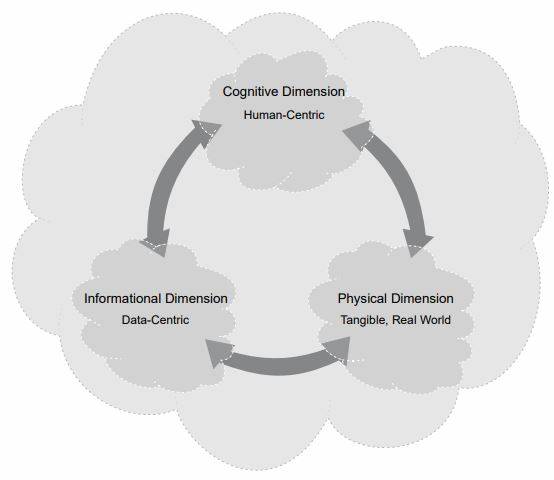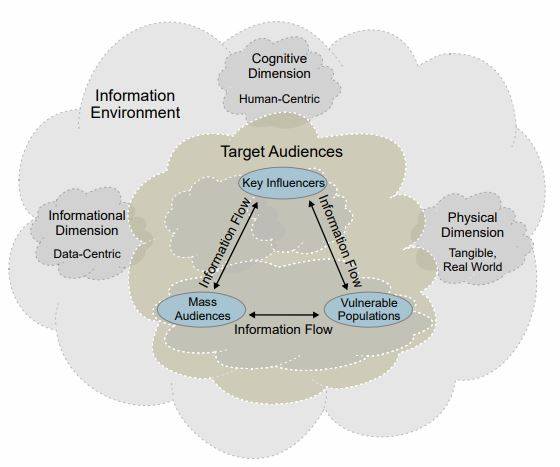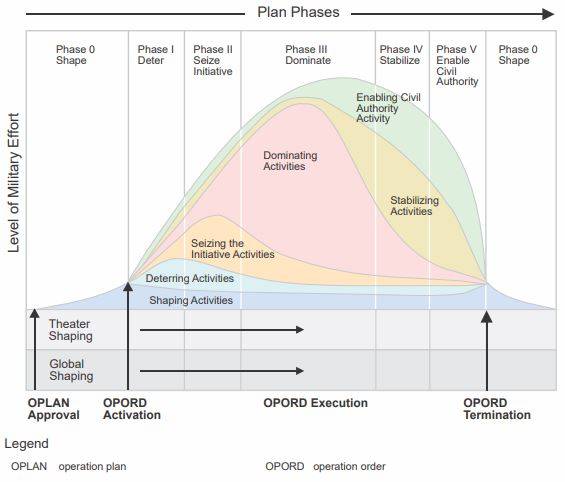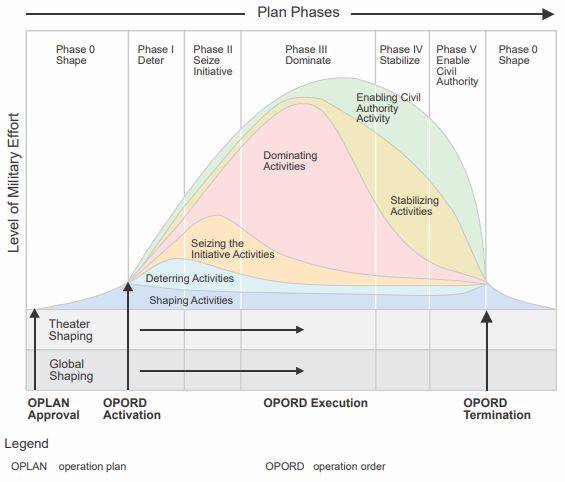This article is the next entry in my series Why Russia is Not Losing the Information War.
The West has undeniably generated far more disinformation than Russia. As I have observed previously, this is likely the single biggest disinformation campaign in history. But generating more noise isn’t the same as winning, is it? Anti-NATO outlets have pointed out that the information war isn’t the same thing as the “real war,” but that’s not quite correct either. Our own Department of Defense splits up a military operation into six warfighting functions (See FM 6, Commander and Staff Organizations and Operations):
…the six warfighting functions: command and control, movement and maneuver, intelligence, fires, sustainment, and protection…
A warfighting function is a group of tasks and systems united by a common purpose that commanders use to accomplish missions and training objectives [emphasis original]. Warfighting functions are the physical means that tactical commanders use to execute operations and accomplish missions assigned by superior tactical- and operational-level commanders. The purpose of warfighting functions is to provide an intellectual organization for common critical capabilities available to commanders and staffs at all echelons and levels of warfare. Commanders integrate and synchronize these capabilities with other warfighting functions to accomplish objectives and missions. 5-10. All warfighting functions possess scalable capabilities to facilitate lethal and nonlethal effects. All the functions implement various systems such as personnel and networks to integrate forces and synchronize activities. Commanders should remember that cyber-related platforms that support integration and synchronization must be protected and defended. Combined arms operations use the capabilities of each function, along with leadership and information, in complementary and reinforcing capabilities.
Notice that “information” isn’t a warfighting function, but at the same time, information is all of them. An American commander has at least three staff officers specifically assigned to information (again, see FM 6.0 for reference):
Intelligence (general staff)
IO (special staff)
Public Affairs (personal staff).
Let’s review our own doctrine about information operations to get a proper understanding of what’s happening right now, at least conceptually.
Before going any further, we need to define IO. From JP 3-13, Information Operations:
IO is not about ownership of individual capabilities but rather the use of those capabilities as force multipliers to create a desired effect.
Again, simply owning assets and using them isn’t winning. “Winning” can be defined as successfully using IO assets to achieve a desired effect. An effect on what? Again, looking to JP 3-13, an operation can be defined into three “dimensions.”

The Physical Dimension. The physical dimension is composed of command and control (C2) systems, key decision makers, and supporting infrastructure that enable individuals and organizations to create effects. It is the dimension where physical platforms and the communications networks that connect them reside. The physical dimension includes, but is not limited to, human beings, C2 facilities, newspapers, books, microwave towers, computer processing units, laptops, smart phones, tablet computers, or any other objects that are subject to empirical measurement. The physical dimension is not confined solely to military or even nation-based systems and processes; it is a defused network connected across national, economic, and geographical boundaries.
The Informational Dimension. The informational dimension encompasses where and how information is collected, processed, stored, disseminated, and protected. It is the dimension where the C2 of military forces is exercised and where the commander’s intent is conveyed. Actions in this dimension affect the content and flow of information.
The Cognitive Dimension. The cognitive dimension encompasses the minds of those who transmit, receive, and respond to or act on information. It refers to individuals’ or groups’ information processing, perception, judgment, and decision making. These elements are influenced by many factors, to include individual and cultural beliefs, norms, vulnerabilities, motivations, emotions, experiences, morals, education, mental health, identities, and ideologies. Defining these influencing factors in a given environment is critical for understanding how to best influence the mind of the decision maker and create the desired effects. As such, this dimension constitutes the most important component of the information environment.
Now we have spoken of effects, but who are we affecting? Army Regulation 360-1, the Army Public Affairs Program, categorizes “audiences” in two flavors, internal and external. Simply us and them. From the Russian perspective, they have to consider their own audiences: soldiers and employees in Ukraine, the separatists, and those equivalent audiences on the Ukrainian side.

With Russian public approval for the war in the high 70s/low 80s, we can safely conclude that they have “won” the information war within Russia itself, and I don’t think anyone seriously disputes that statement.
I wouldn’t be bold enough to declare that they are winning the information war in Ukraine, I simply don’t have the data to even begin to make such a sweeping statement.
That said, I can provide an American insight into Russia’s IO campaign in Ukraine, and I bet doctrinally, they mostly follow the same ideas as us. Referring back to JP 3.13, IO efforts follow the other mechanisms in a military operation to achieve shared desired effects. I would like you to pay special attention to the phases.

Phase 0 Shape
Phase I Deter
Phase II Seize Initiative
Phase III Dominate
Phase IV Stabilize
Phase V Enable Civil Authority
Phase 0 Shape
At this point in their operation, Russia has clearly performed Deter(try to achieve their desired goals without a war). They obviously seized the initiative. And they dominated. Now the definition of “dominated” isn’t necessarily as obvious as you might think, I am going to get more into that later. But for now, yes, the Russians dominated Ukrainian forces. They achieved air superiority, divided and isolated Ukraine’s best trained and well-equipped units, destroyed their Command and Control (C2), radar, air defense, and supply objects, and completed all of the other tasks required to truly “dominate” the battlefield.
Now that the MoD has declared the “first phase” of their special operation over, I personally believe, and I would bet a lot of money on this, that their equivalent of the “domination” phase is over. Making a bold declaration like this is risky, and would be embarrassing if Ukrainians started firing off a bunch of Tochka-U missiles, or successful air strikes. So I think the Russians are very confident that they have effectively neutralized Ukraine’s heavy weapons, supply lines, and communication networks. We might see a few isolated incidents of successful missile and drone strikes, but probably nothing that could be considered a real counter-offensive.
Now that I’ve talked about a hypothetical Russian perspective, how about NATO and the globalists? Here’s why I think it’s silly to declare that Russia “lost” the information war in the West.
For starters, remember that definition of IO? I don’t think Russia could really “lose” a war that they weren’t trying to fight to begin with. Media pundits have been screaming for the last 5 or 6 years about a so-called Russian disinformation machine… well? Where is it? What happened to the Russian cyber ninjas who elected Donald Trump? Did those guys all get sent to the GULAG or something, because I have seen nothing but anti-Russian propaganda for the past month. I don’t think the Russian disinformation machine even exists.
With the perspective of how the Western political establishment and media have lied about literally everything in this war, I bet they did the same thing in the Cold War. The Soviet disinformation machine didn’t exist either, it was just another ridiculous, stupid lie invented by our ruling elites to scare us into submission. So again, the Russians didn’t “lose” this information war because they didn’t contest it to begin with. You can’t lose a competition you didn’t buy a ticket for.
That said, Russia of course has geopolitical goals, audiences, and leaders in the outside world they want to persuade and influence. But what are those goals, and how can we say if Russia failed to attain them when we can’t actually know for sure what Russia wants, and it’s much too early for anyone to know if they succeeded or not?
I’m not an expert, but here’s some obvious ideas. The vast majority of nations in the world refused to go along with Biden’s sanctions. I’d call that a success for Russia. The Ruble is going back up, and will probably continue to go up. I’d call that a success!
Implying that Russia lost the information war implies that the nazis and globalists won, and I definitely take issue with that statement. What were the nazis and globalists trying to accomplish with their disinformation campaign? I can’t read their minds, but there are some obvious goals I can think of:
Persuade the Ukrainians to fight to the death and not accept a peace deal with Russia. Well, yes. I myself said this. The globalists want to turn Ukraine into the new Afghanistan, a guerrilla-infested war zone that consumes Russian blood and treasure for years or decades. That IO effect was a success. So far. However, let’s not get carried away. We’re only a month into this.
Regime change in Russia. This was quite obviously a major objective of the globalist disinformation campaign, and there’s no denying it. Too many politicians, neo-nazis on the internet, and journalists voiced this idea, including Biden himself, for me to believe they didn’t seriously believe it. I think at this point we can state with reasonable certainty that the desired effect of regime change in Russia is a failure. The fact that the White House walked back Biden’s remarks should be a sign that they realize this isn’t a realistic objective anymore. I don’t see any more stories about billions of Russian anti-war protesters. For that matter, CNN, BBC, and just about every other western outlet has pulled out of Russia. But why would they do that? I understand fear of being prosecuted, but surely they could have at least tried to keep some newsrooms open in Moscow. See, CNN Russia existed just to spread deliberate disinformation, and when that was no longer possible, they shut down. More importantly, the desired end state of disinformation, regime change, was no longer realistic. So they abandoned it. That’s very telling. I do truly believe if the globalists considered regime change a realistic goal in Russia, they would have tried harder to keep their most important disinformation mouthpieces in operation.
Economically cripple and subordinate Europe. A lot of people point out how shrewd and calculating the American regime is with their sanctions policy. The sanctions war with Russia cripples the EU while American companies are (mostly) unscathed. Just like convincing Ukrainian nazis to fight was a success, convincing European nazis to commit economic suicide was also a success. So far at least. Again, it’s too early. I am very interested to see what happens when we hit Putin’s March 31 deadline for buying gas in Rubles. Will Europe do the sensible thing and buy Rubles, or plunge headfirst into the abyss? It’s too early to say, and I’m not bold enough to even try to venture a guess. I’m astonished that Europe has eagerly cut off their own noses, and it’s possible they’ll continue to do that, no matter how insane and self-harming it gets.
Distract American voters. Well, too early to say. I don’t think we should even seriously try to declare this desired effect a success or failure until after the American midterms this year. Then I think we can say with some confidence whether or not Biden succeeded in his campaign to “deflect and blame Putin for everything.” See my post about Biden sacrificing Ukraine for his own political ends.
Here is the bottom line, and another chief reason I say Russia is winning the global information war. They are thinking in terms of months and years, and the globalists are thinking in terms of days and weeks. I don’t think they’re even thinking in terms of weeks. They’re locked in a vicious 24-hour news cycle of trying to come up with the most sensational headline, with no regard to how those lies are going to age as time goes by. NATO has already gone “all in” with their lies by claiming 30-40 thousand Russian casualties. Basically every Russian rifleman has been shot already, according to NATO. It’s apparent that at least some people in western audiences, even people who were indifferent to the Ukraine war early on, are starting to notice how ridiculous the lies are. I also say with some confidence that these lies are often detrimental to the talking points they’re trying to prove. The Russian army did of course commit some real, serious blunders. Especially in the first few days. But the internet was already flooded with so much stupid bullshit about ghosts of Kiev and Rambo babushkas, that real stories with effective propaganda value got drowned out, or were dismissed by many social media users as more stupid lies.
Fatigue is real, and we’re already exhausted. We want to hear about something new, like Will Smith slapping a guy at the Oscars. Western audiences are getting really tired of hearing about Ukraine, and it’s starting to show.
In my next addition to this thread, I’m going to talk about the late Col. John Boyd and his famous decision-making cycle, the OODA Loop.
For more, go back to the main page for why Russia is Not Losing the Information War.
Ian Kummer

Support my work by making a contribution through Boosty
All text in Reading Junkie posts are free to share or republish without permission, and I highly encourage my fellow bloggers to do so. Please be courteous and link back to the original.
I now have a new YouTube channel that I will use to upload videos from my travels around Russia. Expect new content there soon. Please give me a follow here.
Also feel free to connect with me on Quora (I sometimes share unique articles there).



1 thought on “Winning the information war in Ukraine”